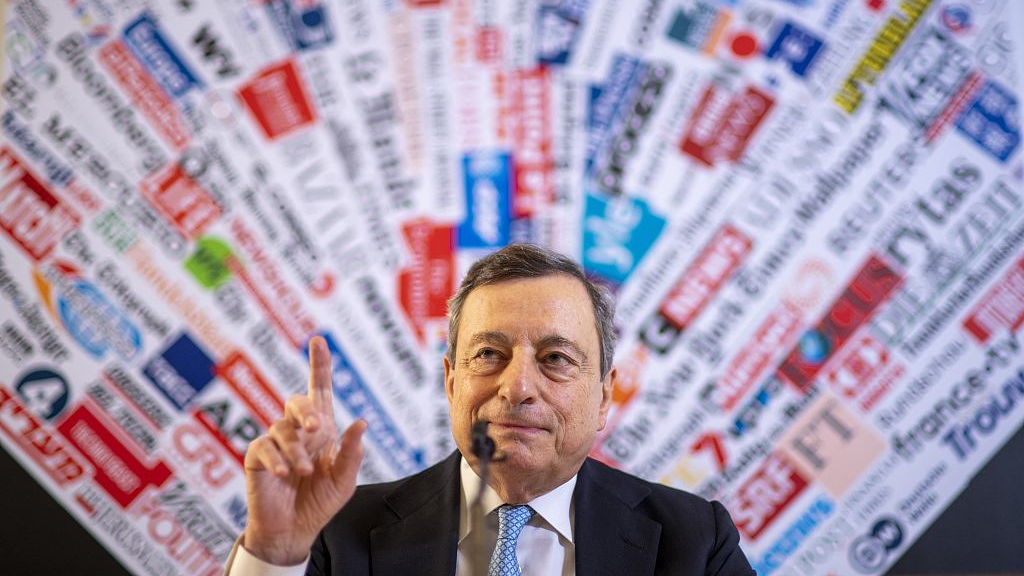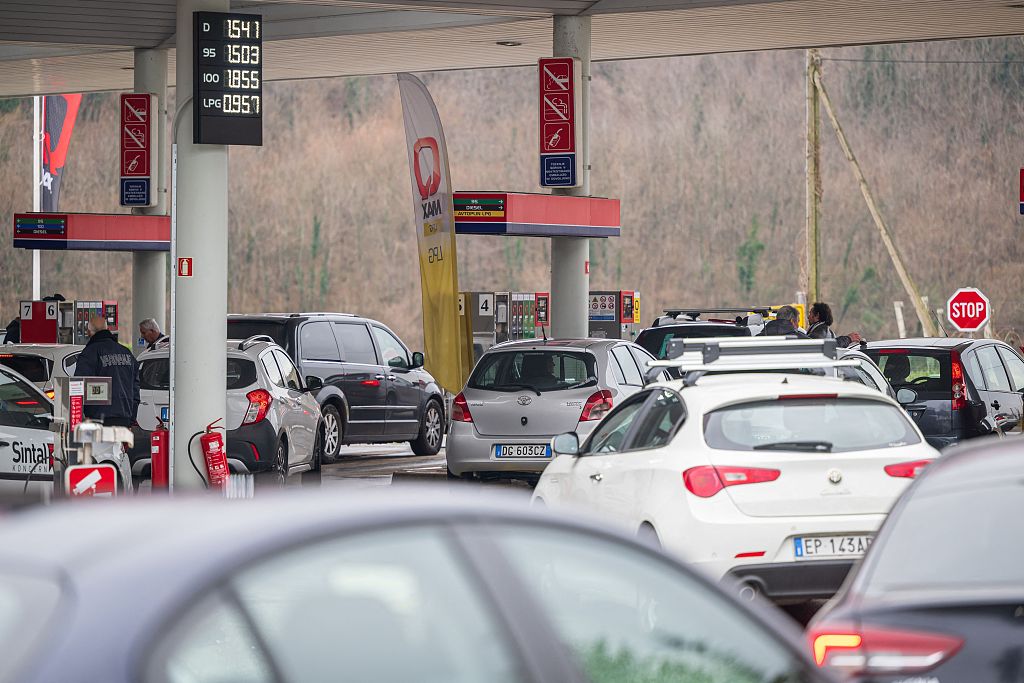
Italian Premier Mario Draghi attends a press conference at the Foreign Press Club in Rome, Italy, March 31, 2022. /CFP
Italian Premier Mario Draghi attends a press conference at the Foreign Press Club in Rome, Italy, March 31, 2022. /CFP
Editor's note: Matteo Giovannini is a finance professional at the Industrial and Commercial Bank of China in Beijing and a member of the China Task Force at the Italian Ministry of Economic Development. The article reflects the author's views, and not necessarily those of CGTN.
The political and institutional history of Italy has been characterized by dramatic events, such as the dissolution of the Soviet Union and Tangentopoli corruption scandal, which led to the transition from the First to the Second Republic in the early 1990s.
Additionally, an electoral system makes it practically impossible, even at the present time, for winning parties to gain a solid majority in both the Chamber of Deputies and Senate, which had frequently resulted in the government's inability to approve necessary reforms the country so desperately needs. This lack of stability is manifested by Rome having 69 separate governments with 29 prime ministers ever since the country was proclaimed a Republic in 1946.
Early this year, the reelection of a reluctant Sergio Mattarella as Head of State was acknowledged as a decision aimed to reaffirm national stability through continuity. The Mattarella-Draghi tandem was regarded as a hallmark for the majority of European partners, United States, and global financial community.
Nonetheless, Draghi's resignation as Prime Minister in late July, despite surviving a no confidence vote, has resulted in the immediate dissolution of the parliament, and thrown the country into turmoil, placing it on course for snap elections on September 25.
The drastic change in leadership could not come at a worse time for the third-largest national economy in the European Union due to a convergence of crises ranging from the sky-high costs of living to impending energy shortages that largely stem from the ongoing war in Ukraine.
Decision makers in Brussels, Washington, Moscow, and Beijing, are expected to pay close attention to the elections and according to polls, the rightwing coalition, with strong nationalist sentiments and long-held hostility towards the European Union, is anticipated to win.
A number of analysts and policymakers worry about Italy, since it's characterized by a mountain of public debt-to-GDP, at around 150 percent according to Italian central bank data published in February, and with chronically slow economic growth rates that the global pandemic has exacerbated.
Hence, Draghi's resignation represents a huge risk factor for the stability of Italy and for the EU, as well as for the transatlantic coalition. Under Draghi's leadership, the country has garnered greater influence and respect within the European Union. Meanwhile, the EU is heading into an energy crisis and the euro is losing value to the U.S. dollar, while the departure of the former President of the European Central Bank would spark more volatility in the domestic and global markets.
Italy is a country that lacks abundant supplies of natural resources, which makes it reliant on energy imports especially from Russia. Italy is the second largest importer of Russian gas in the EU. The disruptions of gas delivereies to the country would see the economy shrink by five percent. according to the International Monetary Fund.

Drivers, mostly from Italy, wait in their cars to benefit from lower prices as they queue to enter the gas station in Dobrovo, a small village in Slovenia close to Slovenian-Italian border, March 16, 2022. /CFP
Drivers, mostly from Italy, wait in their cars to benefit from lower prices as they queue to enter the gas station in Dobrovo, a small village in Slovenia close to Slovenian-Italian border, March 16, 2022. /CFP
Accordingly, the newly appointed Italian government must address energy shortages that could directly affect the daily lives of individuals, families, small and large companies.
The new government might not take any drastic initiatives that could modify the country's current positioning in respect to the EU and NATO. The rightwing coalition could recognize that all NATO members should support Ukraine, despite the likely risk of getting cut off from Russian gas. Meanwhile, Italy continues to receive funds from the Next Generation EU fund, which was agreed by the Draghi government and aims to repair the economic and social damage caused by the pandemic crisis.
Another reason for keeping Italy aligned to the EU position could be the possibility of the introduction of a common European financial measure that serves to help EU members as a new edition of the Recovery Fund created to rebound economically from the pandemic. However, the possibility that a Recovery Fund will be launched is minimal due since many Europeans feel strong resistance against introducing a new common debt.
The new administration could mitigate the impact of soaring energy prices by introducing a similar form of market interventio, such as the Ofgem Energy Price Cap, which was recently approved by the United Kingdom and sets the maximum price tag that energy suppliers could charge per kilowatt hour of gas and electricity. Additionally, monetary assistance to all families and business activities, which have been hurt from high inflation, could be disbursed.
In the long term, the new government's focus could be to promote an energy transition by shifting away from the fossil-based systems of energy production and consumption, whether it is oil, natural gas, and coal, to renewable energy sources including wind, solar, and lithium-ion batteries.
If this transition is confirmed by the new government's agenda, China could play a crucial role. It's the world's second largest economy and global leader of renewable energy with over three quarters of global photovoltaic modules made in the country.
All in all, Italy's snap elections represent a crossroads for the country where even a coalition government made of parties that have a strong sovereign approach and run contrary to most European policies will have no other choice but to maintain a conservative posture to safeguard the domestic economy. Time will tell if this decision would be proved wise.
(If you want to contribute and have specific expertise, please contact us at opinions@cgtn.com. Follow @thouse_opinions on Twitter to discover the latest commentaries in the CGTN Opinion Section.)

